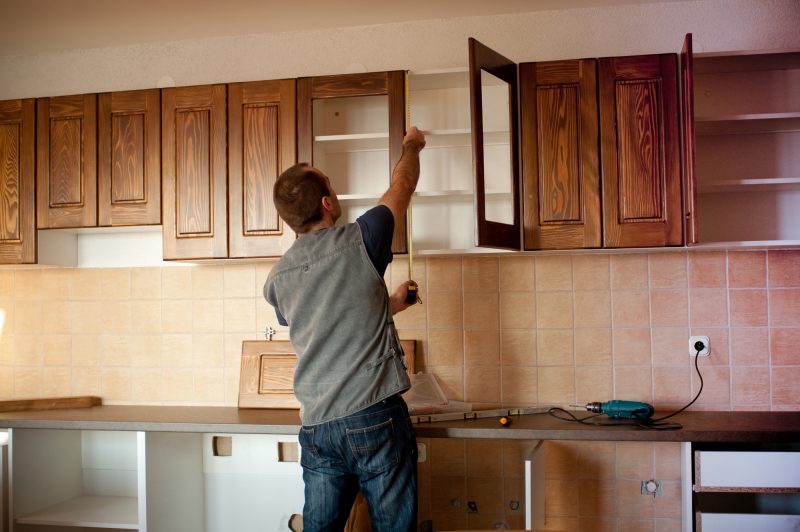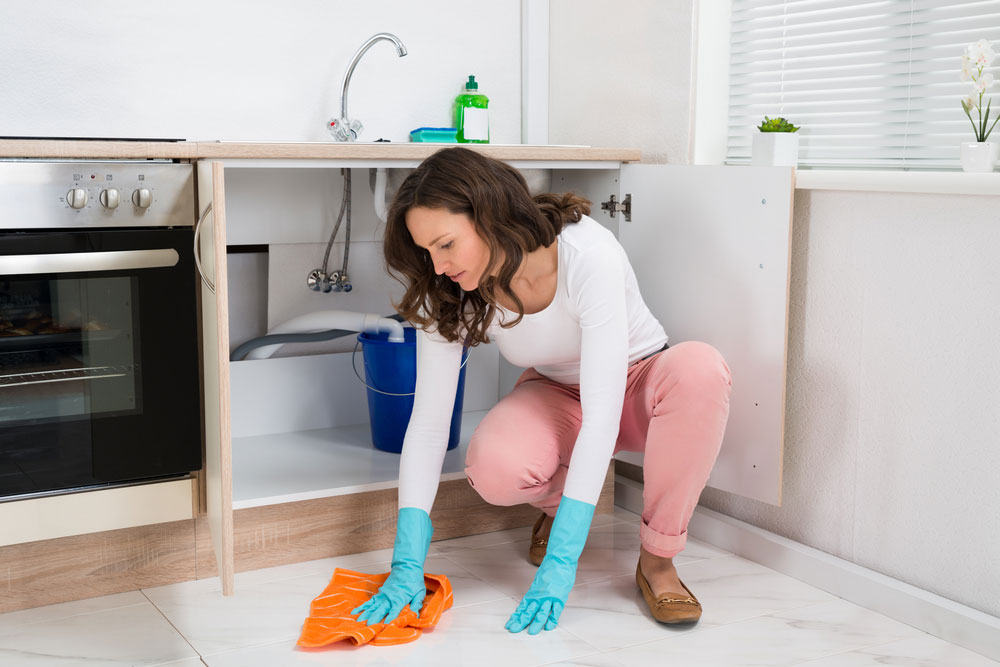Click Here
Were you trying to find know-how concerning How To Prevent Water Damage To Your Kitchen?

The cooking area is the area where a great deal of water task takes place. You can rarely do anything without making use of water in the cooking area, from food preparation, cleansing, as well as doing the dishes.
Thus, checking your cooking area every so often is a necessity. Due to the fact that it has a greater opportunity of obtaining water damage due to the devices you make use of there, this is.
When damaged, these devices that manage water could make your kitchen unpleasant and impact the structure of your building in the long run.
So, let's take a look at some reasons for the water damage in the kitchen area and also what you need to watch out for.
Some Reasons For Water Problems in the Kitchen area
These are a few causes of water damage in the cooking area.
Faulty Drain Pipes
Drain pipes Pipes are necessary parts of our residences, particularly in our bathrooms and also kitchen areas. They get malfunctioning by getting obstructed, cracked, and also burst. Or even worse, they can be incorrectly or loosely linked; whichever the case might be, it can be a severe trouble.
Defective drainpipe pipes can create water damage and, therefore, trigger mold and mildew growth and also disfigure the appearance of your wall. It can likewise make the affected location look messy.
It is a good idea constantly to check to guarantee that all the pipelines are in excellent condition as well as get an audio pipes system to maintain as well as take care of any kind of issues.
Faulty Kitchen Sink
The kitchen area sink is a crucial and also most used part of the kitchen area. It is vulnerable to water damage; problems such as obstructed pipelines, dripping pipelines, and also damaged taps.
These problems can be irritating, specifically when one is active in the cooking area. Nevertheless, it doesn't just take place without offering an indication or a hint. Here are some signs to recognize when your sink is not fine
So, these are the major problems that can take place to your kitchen sink. One method to quit this damages is by guaranteeing that food bits do not obtain into the pipes. You are likewise examining the pipes and taps as well as ensuring that it is effectively dealt with and also in good condition.
Leaking Dishwasher
Dishwashers make life in the kitchen area easier. It is an optional kitchen home appliance as well as, when offered, can be a source of water damage. Additionally, like other machines, it will develop mistakes with time, despite having upkeep.
Among the mistakes is leaking through the door or beneath the dishwasher. These faults create as a result of age, cracks, wrong usage, loose web links to pipelines, and so on.
Faults because of age come from continuous use. Consequently, the door leakages as a result of shutting and opening.
Mistakes from the wrong usage might trigger water damage by introducing splits to it. It is a good idea to follow the hand-operated guide of the dishwasher to avoid this particular damages.
The leaks under the dish washer can come from cracks in the gasket, pipe, and incorrect or loose link to water pipes or drains pipes.
This kind of leakage typically goes undetected as well as can be there for a long period of time. Nevertheless, as a result of the time frame, it might create and harm the flooring mold development.
More so, the longer the water stays, you will certainly discover the bending of the flooring where the dishwashing machine is. When examining if your dish washer leaks, this is a great indicator to look out for. Detecting and fixing this on schedule stops significant water damage to your flooring.
Bottom Line
Watching out for problems in your cooking area can be entrusting but needed. It makes your job there less complicated and safer.
The reasons provided above are just a couple of variables to consider, especially if your kitchen has a lot of appliances.
Obtain a specialist pipes solution to come about as well as inspect for any type of damage and obtain them taken care of.
It makes your kitchen area wet and messy, specifically when trickling from the pipelines. As well as if it is leaking from the faucet, it leads to water wastefulness.
It is an optional cooking area device and also, when offered, can be a source of water damage. Much more so, the longer the water stays, you will see the bending of the flooring where the dishwashing machine is. Spotting and also repairing this on time avoids major water damage to your flooring.
WAYS TO PROTECT YOUR KITCHEN FROM WATER DAMAGE
The kitchen is one of the most significant rooms in your house, as it is a multipurpose room wherein you can do your cooking and cleaning. Nowadays, homeowners tend to ignore the problems under their sink or appliances because of their busy schedules. However, most household floods occur due to plumbing and appliance failure. One of the most common scenarios that cause water damage to your kitchen is when the dishwasher malfunctions and floods gallons of water.
Water damage in your kitchen can cause several problems, including cosmetic damage, mold growth, and even an unpleasant smell. Often, if you fail to neglect the problem, there are always consequences. This article will help you protect your kitchen from water damage.
Common Causes of Water damage in your kitchen
Pipe problems are the most common source of water leaks under your sink. If homeowners ignore this issue, it will burst and flood the kitchen. Dishwasher leaks can be a source of water damage in your kitchen. An old, broken, and defective dishwasher can cause leaks, damage to your floor, and even mold growth. Refrigerator leaks can cause water damage in your kitchen, as sometimes melted ice from defrosting can cause leaks. Furthermore, if your refrigerator has internal problems, it is very likely to cause water damage. Back-splash and sink caulking can cause discoloration and water damage to your countertop tiles. Ways to Protect Your Kitchen From Water Damage
Regular maintenance
The most important thing you can do to protect your kitchen from water damage is to inspect the sinks, drains, and pipes, as well as the kitchen appliances, regularly. As with the sink, check for missing or deteriorated caulk. Remove the old caulk and clean the area thoroughly and re-seal it with fresh silicone. Furthermore, sweep the drain regularly, empty the filter and dispose of the debris in the garbage, and inspect the supply lines and valve for cracks.
Check your appliances
Check the user’s manual for instruction and proper use of every water-related appliance installed in your kitchen. For the dishwasher, check this procedure to prevent the dishwasher from flooding your kitchen. Check the appliances that need water, such as the coffee maker, ice maker, and water cooler, as they can become the cause of water damage in your kitchen. You may call a professional to check and repair damaged appliances and professional restoration for water damage clean-up.
Garbage clean-up
Fats, oil, and grease are common in the kitchen. Pouring them down the drain can cause clogs and sewage backup, which may result in significant kitchen water damage. If your kitchen sink is clogged, use a solution of hot water, baking soda, and vinegar to unclog the fats and oils in the pipes. Also, make sure to throw out the debris in the trash and clean the sink properly using paper towels for greases and oil and soap or bleach solution for the sink itself.
Shut off your water line
Make sure to shut off your main water line, especially if you're away and having some flood issue. As mentioned, dishwasher leaks are one of the most common culprits of water damage in the kitchen. So, make sure to only use the dishwasher if someone is at home and available to attend in case a problem arises.
Furthermore, it is also important that every member of your household knows where the shut-off valves are located. So in case of an emergency, they can mitigate the damage by turning off the water source.
Install leak detectors
One of the best ways to catch water damage before it could even cause serious damage to your home or business is by installing a water or leak detector. A leak detector monitors the flow of water through a pipeline, can detect moisture in the air for molds, and tracks the water temperature. Also, it can shut off your water line in case of an emergency. Install leak detectors under the kitchen sink, near the dishwasher and refrigerator.
https://superiorrestore.com/7-ways-to-protect-your-kitchen-from-water-damage/

We had been made aware of that editorial on Water Damage in Kitchen through an associate on another blog. Liked our piece? Please share it. Let someone else find it. Thank-you for going through it.
Visit Our Website